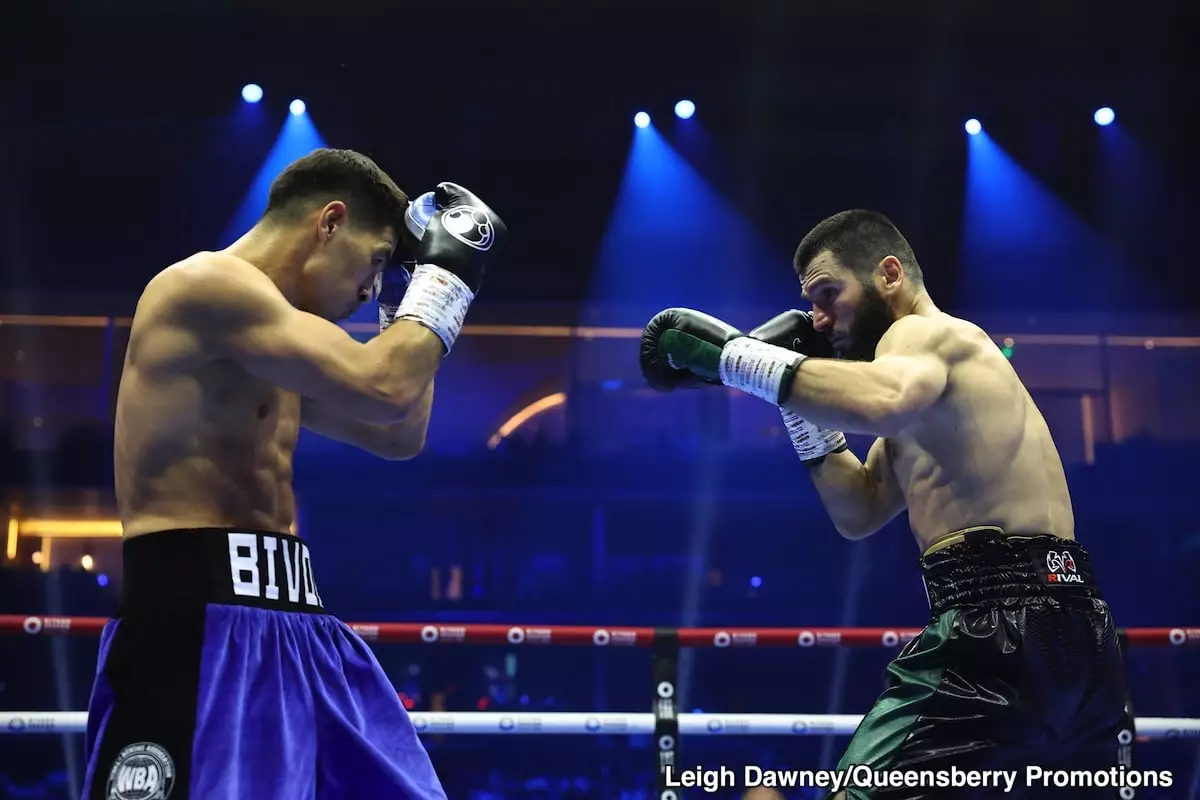On October 12th, 2023, boxing enthusiasts witnessed an intense showdown between Dmitry Bivol and Artur Beterbiev at the Kingdom Arena in Riyadh, Saudi Arabia. The bout ended in a 12-round majority decision in favor of Beterbiev. However, the post-fight narrative has steered towards Bivol’s decision to file a protest with the four governing boxing bodies, seeking a rematch. This article delves into the implications of this protest, the dynamics of the fight, and the broader impact on both fighters’ careers.
Bivol’s camp claims that many viewers perceived their fighter as the winner of the contest, thus justifying a protest. While the emotional weight behind this argument is understandable, it feels misplaced in the critical analytical realm of professional boxing. Perception is inherently subjective; without tangible metrics to substantiate that “majority of viewers” sentiment, this assertion lacks credibility. In reality, protests of this nature can be viewed as attempts to undermine the judges’ decisions, raising the question: Is this merely sour grapes?
Moreover, protests filed in the wake of a loss can portray a fighter as unwilling to accept defeat gracefully. When analyzing Bivol’s performance, it becomes evident that the nature of his movements and strategy primarily led to his downfall. His reliance on evasion, particularly in the latter rounds, suggests not only a game plan but a cautious fighter who appeared desperate to survive rather than seize victory. Such an approach can ironically backfire, leading fans and analysts alike to question his competitive spirit.
From the start, Bivol showcased his tactical proficiency, employing footwork aimed to frustrate Beterbiev. However, as the bout progressed, it became increasingly clear that Beterbiev’s relentless aggression would ultimately dictate the fight’s pace and tone. Observations from boxing analysts like Gareth A. Davies emphasize this shift; they noted how Beterbiev began asserting dominance, notably after the seventh round, capitalizing on Bivol’s evasive tactics.
Interestingly, a key moment was observed in the seventh round when Bivol launched an offensive yet ended up on the receiving end of a powerful counter from Beterbiev. This pivotal exchange signified not just a turning point in the fight but also reflected Bivol’s fading confidence. If he had opted for a more aggressive approach throughout the bout, the fight could have shifted dramatically in his favor, especially given Beterbiev’s age and perceived vulnerabilities.
Critically, Bivol surrendered ground in the final rounds, revealing a lack of willingness to engage in combat. As stated in several expert analyses, while some might argue that he was merely employing smart ring-craft, many recognized this as avoidance—a tactic that ultimately led to his debacle. Boxing is not only about avoiding damage but also about inflicting it, a balance Bivol seemed to have neglected.
Should a rematch take place, many factors will come into play. Firstly, the established narrative surrounding Bivol’s perceived fear of Beterbiev will loom large. The fight should ideally take place in a setting that minimizes the room for evasion—potentially a smaller ring that would force Bivol to engage more directly.
Moreover, strategic shifts will be essential. Bivol’s current standing in the boxing community might hinge on his ability to adapt and demonstrate that he can learn from his previous bout. If he fails to retaliate effectively, the protest may solidify his reputation not just as a challenger, but also as a fighter caught in moments of hesitation.
In contrast, Artur Beterbiev, having established superiority in their first encounter, must consider what lies ahead. Options like a bout against prominent boxers such as Canelo Alvarez or David Benavidez could be more lucrative and appealing than a rematch against a Bivol who failed to capitalize on his earlier chances.
The sport of boxing transcends physicality; it intertwines psychology deeply. The mental aftereffects of a loss can lead to self-doubt, which can be exacerbated by protests like Bivol’s. The need to reclaim lost pride can often motivate a fighter, but it can also lead them to overlook essential adjustments needed for improvement.
Ultimately, while Bivol and his team’s actions may be understandable, they risk overshadowing the lessons learned in the ring. No amount of public protest can replace the need for personal reflection and tangible growth in performance. The boxing world will be watching closely to see how both fighters navigate the saga that follows this high-stakes match.

